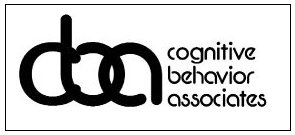Therapy is a personal experience. You may associate therapy with the treatment of mental illness or substance dependency, but therapy is actually useful for most people. The obstacles and challenges we face every day can be difficult to tackle alone, and therapy can help to reduce that burden. Unfortunately, therapy is still something that our society isn’t always comfortable discussing. That makes it really difficult to find quality information designed to help people just like you. Let’s try to find what kind of therapy is right for you.
What Kind of Therapy Is Right for Me?
In order to help fill in the gaps, we have put together this brief guide. This guide will cover the types of professionals you will encounter and the most common types of therapy. For each type of therapy, we will discuss the situations that they are best suited to. Hopefully, this guide will give you a place to start, but know that you can always experiment with different types of therapy if you find that one approach isn’t working as well as you hoped.
Types of Professionals
There are four professional categories in the field. You’ll run into at least one of them during your search for the right therapy, so it helps to know what their educational background is and what they are allowed to do.
- Psychiatrist: A psychiatrist is a professional with a medical degree specializing in human behavior and the inner workings of the brain. These doctors can prescribe medication in addition to providing therapy.
- Psychologist: A psychologist usually has a non-medical doctorate in psychiatry. These are incredibly well-educated professionals, but they cannot prescribe medicine due to their lack of medical training.
- Licensed Counselor: A licensed counselor typically has a Master’s degree in counseling as well as a state certification. These programs are rigorous.
- Licensed Clinical Social Worker: A licensed social worker typically has a Master’s degree in social work. In addition to their degree, they have undergone extensive supervised training.
Types of Therapy
There are countless types of therapy available, and it can take some experimentation to find the best approach for you. With that said, knowing a little about the most common types and what they are usually used for can give you a place to start as you’re looking for a practitioner who will suit your needs.
- Cognitive Behavioral Therapy: What is CBT? It’s an umbrella term that encompasses a host of more specific approaches. CBT is generally best suited to patients dealing with anxiety and depression. It is also a popular choice for overcoming dependency. When you receive cognitive behavioral therapy in Los Angeles, your practitioner will help you to recognize and challenge negative thoughts that are actively resulting in harmful responses.
- Psychoanalysis: This approach to therapy is more conversational. By getting to know more about you and your life, your therapist will help you to unpack parts of your life that you struggle with. This approach to therapy is generally suited to patients who are dealing with things that happened to them in the past but continue to affect them in the present.
- Eye Movement Desensitization and Reprocessing Therapy: EMDR is a more recent approach to therapy that has gained traction since its invention in the late 1980s. Its design specifically helps treat patients with trauma and PTSD. But you will find that the subject can prove polarizing for professionals in the field. If EMDR seems something you wish to try, make sure your therapist has the necessary training.
Many Options Exist
These remain just a handful of the hundreds of types of psychotherapy available to you. In truth, the best approach for many patients begins with finding the right practitioner. You want to find someone who makes you feel comfortable. And someone who has all of the training to successfully help you navigate the chaos of life. Once you find the right person, you can start to explore options together.

